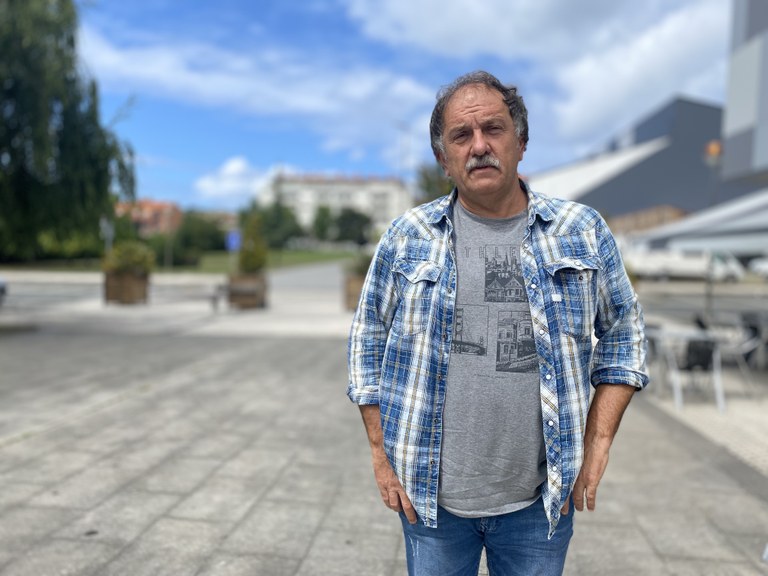Ibon Uranga: "Octopus is eaten all over the world, but it’s only dried here, in Zumaia"
A chef and a teacher of chefs, Ibon Uranga (Zumaia, 1963) is, above all, one of the founders of the Olarro Eguna (Octopus Day) organized by the City of Zumaia. He is also in charge of preparing this popular culinary event, held on the third Saturday of September, so Uranga knows it when it all comes to octopus.
- Octopus has gone from a food for times of famine to the king of Zumaia.
Zumaia's is a very unique octopus, from a time when it was heavily fished. Back then there were no refrigerators or other conservation techniques, so in Zumaia they decided to dry it. By removing the water, they managed to conserve it for the whole year. And the best way to eat that dried octopus was in soup. This was probably where the close tie between octopus and Zumaia began. The fact is that octopus is eaten all over the world, but it’s only dried here, in Zumaia - with the exception of several places in Greece.
- Did you used to fish for octopus?
As a young man, yes, like almost all zumaiarras, but I wasn't very into fishing.
- Octopus soup is a specialty of Zumaia...
After drying the octopus, it is very, very dry, so you need a good stomach and strong teeth... This is why they decided to start cooking octopus soup. To make it, you have to cut up the octopus and put it in cold water for a day; this way it absorbs the water and expands. Then you have to cook it, like garlic soup, to soften it. Zumaia maintains this custom, especially since we have continued to consume it this way on St. Telmo's Day.
- What should be borne in mind when cooking octopus?
The first thing is where the octopus is from, how much it weighs and, consequently, how long you need to cook it. For example, the octopus from here is smaller, tougher, and full of flavor. On the market, however, most of it comes from Morocco, where it is softer, so it cooks faster. And it's bigger and lighter in color. We, at the Olarro Eguna, serve the local one, and add potatoes, because they take on more flavor.
- You are one of the founders of the Olarro Eguna. How did it come about?
In 2003 a medieval market was organized in Zumaia, and three friends of mine and I had the chance to set up a stand. Dressed as Franciscans, we offered txistorra (sausage) and wine in the morning, and in the afternoon we made fresh churros, right there. After the festivities we went to dinner and, little by little, came up with the idea: in Mutriku they have mackerel, in Ondarroa, hake; in Getaria, anchovies; in Orio, sea bream ... so we figured it was necessary to organize an octopus day in Zumaia. So, we submitted a proposal to the City Council and they accepted it.
- You're charged with preparing the Olarro Eguna organized by the City of Zumaia. Does it involve a lot of work?
Yes, I started out with three friends, but, from that group, I'm the only one who's still here. Fortunately, however, I have many friends, and they're all involved in the world of cooking. They come to help, along with two or three other friends from the town. I've got a lot of help.
- Finally, you're a local zumaiarra, a cook, a cooking teacher... you must like octopus, don't you?
Yeah, yeah. Ha ha ha!

 turismoa@zumaia.eus
turismoa@zumaia.eus
 Bulegoa
Bulegoa











